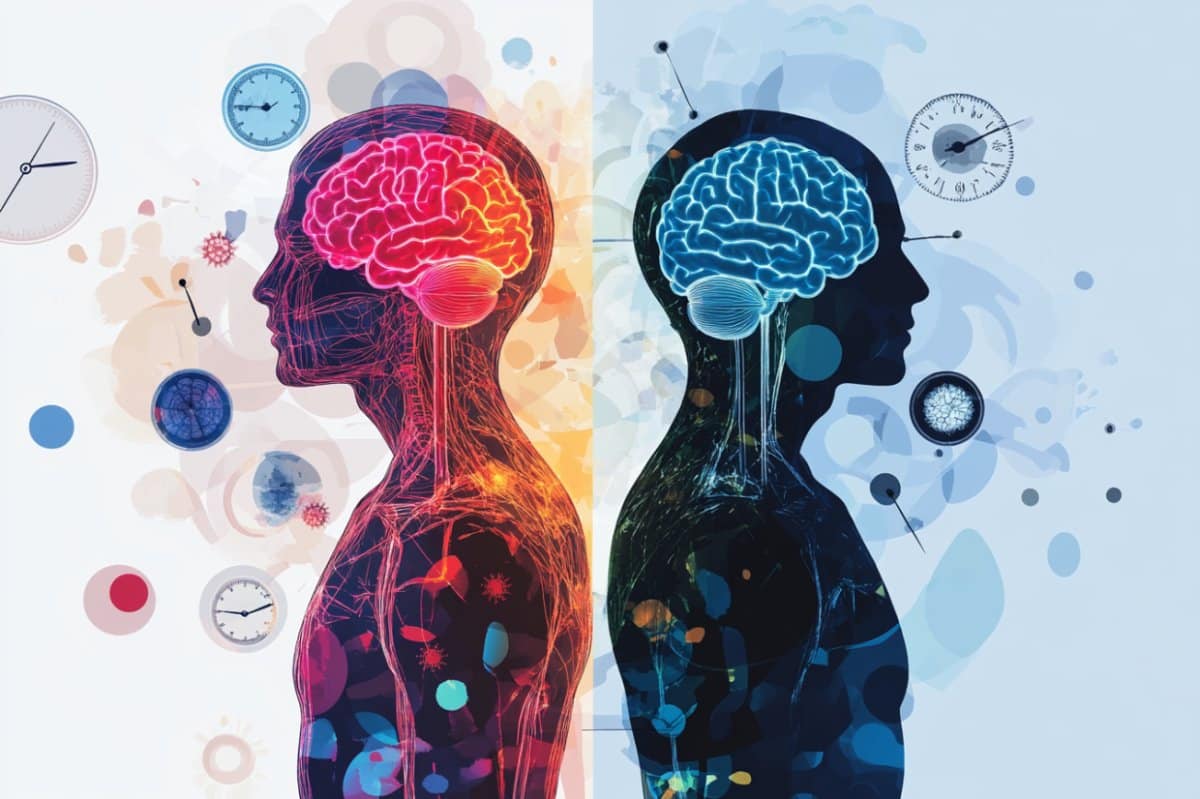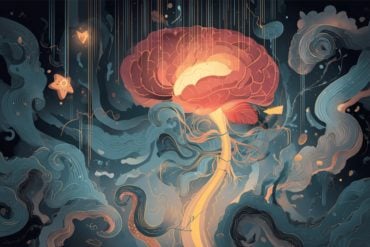Summary: A large study found that people whose biological age exceeds their chronological age are about 30% more likely to develop dementia. Biological age, measured through biomarkers like lung function and cholesterol, reflects how the body’s systems are aging.
Researchers observed that individuals with higher biological age also showed brain changes, such as reduced gray matter, which are linked to dementia. Although the study does not prove causation, it suggests that slowing biological aging through lifestyle changes could reduce dementia risk.
Key Facts:
- 30% Higher Risk: Advanced biological age is linked to a significantly increased dementia risk.
- Brain Changes Observed: Higher biological age was associated with dementia-related gray matter loss.
- Lifestyle Matters: Biological age can be influenced by diet, exercise, and healthy living habits.
Source: AAN
People whose biological age is higher than their chronological age may be more likely to develop dementia than people whose biological age matches or is lower than their chronological age, according to a study published on April 30, 2025, online in Neurology.
Biological age is based on biomarkers of aging such as lung function, blood pressure and cholesterol.
The study does not prove that advanced biological age causes dementia; it only shows an association.

“With the rising impact of dementia around the world, identifying risk factors and implementing preventive measures is essential,” said study author Yacong Bo, PhD, of Zhengzhou University in China.
“While none of us can change our chronological age, we can influence our biological age through lifestyle factors such as diet and exercise.”
The study involved 280,918 participants in a United Kingdom database who were an average chronological age of 57 at the start of the study and did not have dementia at that time.
They were followed for an average of 14 years. During that time, 4,770 people developed dementia.
The researchers used two methods to measure biological age. In addition to lung function, blood pressure and cholesterol, the methods measured other biomarkers in the blood, such as average cell volume and white blood cell count.
These methods show how different parts of the body, like metabolism, immunity, liver, kidneys, heart and other systems, work together as we age.
While the people who later developed dementia had an average chronological age of 65 at the start of the study compared to 57 for those who stayed free of dementia, their average biological age was 55 by one of the methods, compared to 45 for those with no dementia.
When dividing the participants into four groups based on biological age, researchers found that those with the most advanced biological age were about 30% more likely to develop dementia than those in the lowest group.
These results adjusted for other factors that could affect the risk of dementia, such as age, education level and smoking status.
The researchers also found that people with advanced biological age also had changes in their brain that are associated with dementia, such as loss of gray matter volume.
“These brain structure changes explain some, but not all, of the association between advanced biological age and dementia,” Bo said.
“These results support the hypothesis that advanced biological age may contribute to the development of dementia by causing a widespread change in brain structures.”
A limitation of the study was that participants in the database tend to be more health conscious than the general population, so they may be less likely to develop dementia.
Funding: The study was supported by Henan Province and Zhengzhou city governments in China.
About this aging and dementia research news
Author: Renee Tessman
Source: AAN
Contact: Renee Tessman – AAN
Image: The image is credited to Neuroscience News
Original Research: The findings will appear in Neurology






